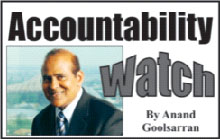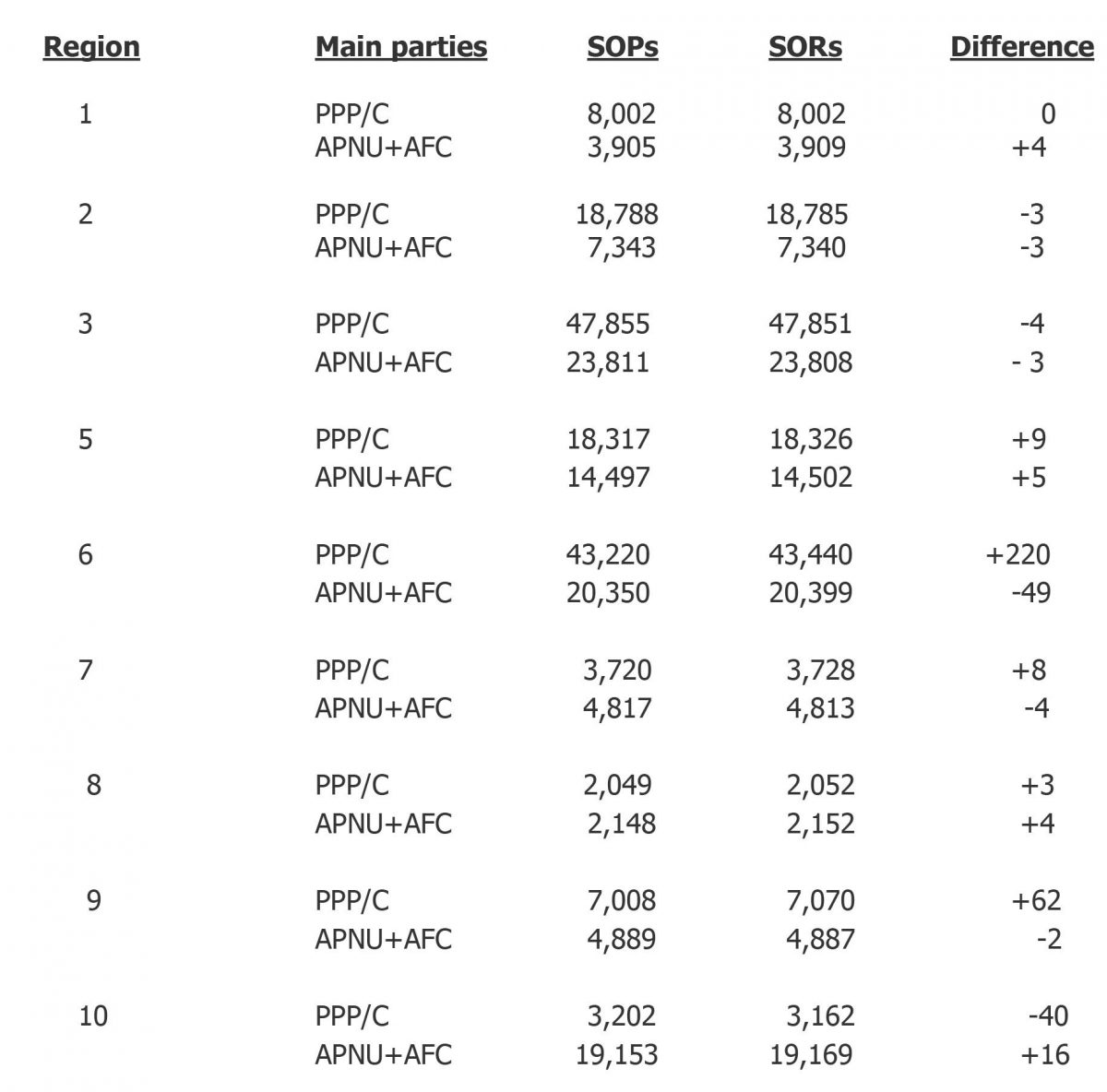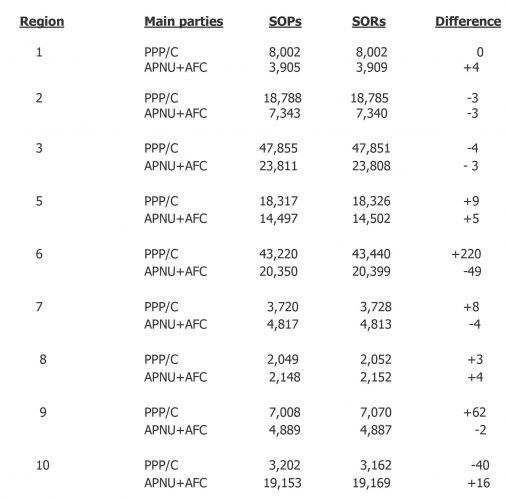 Since the recount of the votes for the 2 March 2020 general and regional elections commenced on 6 May, we have been tracking developments on a weekly basis as the exercise progressed. Now that the recount has been completed, it is time to evaluate the extent to which it has been successful.
Since the recount of the votes for the 2 March 2020 general and regional elections commenced on 6 May, we have been tracking developments on a weekly basis as the exercise progressed. Now that the recount has been completed, it is time to evaluate the extent to which it has been successful.
Aide mémoire and recount Order
Following the controversy over the attempted declaration of the results of the elections on 13 March, the Chairperson of CARICOM brokered an agreement with the President and the Opposition Leader for a recount of all the votes cast ‘as a means of assuaging the contesting parties and determining a final credible count’.
In the aide mémoire, signed by the President and the Opposition Leader, both leaders committed themselves to honour the results of the recount which was to have commenced the following day in the presence of a CARICOM high-level team. However, an APNU+AFC regional candidate filed an application to stop the proposed recount, forcing the team to return home. The CARICOM Chair had cause to state that ‘[i]t is clear that there are forces that do not want to see the votes recounted for whatever reason. Any Government which is sworn in without a credible and fully transparent vote count process would lack legitimacy’.
The Commission had agreed against considering the report on the election results prepared by the Chief Election Officer (CEO), which report was compiled with the inclusion of the flawed results of Region 4. However, instead of discarding the report in its entirety, GECOM decided to hold it in abeyance and considered it valid unless replaced by the results of the recount. We had stated that, should the recount exercise not result in a satisfactory conclusion, it would be inappropriate for GECOM to fall back on this flawed report to declare the winner of the elections, as such an action would be tantamount to thwarting the will the people to elect a government of their choice.
The CARICOM team returned on 2 May 2020 to witness the recount. The CEO had prepared a work plan for the recount indicating that the exercise was expected to take 156 days using three workstations. Clearly, the timeframe was unrealistic, necessitating a revision to the plan, as detailed in the gazetted Order of 4 May 2020.
Key elements of the Order are:
(a) The recount is to commence on 6 May 2020 with ten workstations and proceed continuously each day, including weekends and holidays, from 08:00 to 19:00hrs for a period of 25 days, which period will be subject to a review during the first week of the recount;
(b) Persons entitled to be present include representatives of political parties that contested the elections, the CARICOM team, and accredited international and local observers;
(c) Apart from the actual recount of all the ballots cast, the exercise is to include reconciling: (i) ballots issued with the ballots cast, destroyed, spoiled, stamped, and as deemed necessary, their counterfoils/stubs; (ii) the ballots with the number of voters listed and crossed out as having voted; (iii) the number of votes cast without ID cards; (iv) the number of proxies issued and the number utilized; (v) statistical anomalies; and (vi) occurrences recorded in the Poll Book;
(d) The result of the recount is to be recorded on a Statement of Recount (SOR) upon the completion of the recount of each box;
(e) For each electoral district, the SORs are to be input into a matrix duly signed by representatives of all the political parties participating in the elections in the presence of the Scrutinising Team and the accredited observers;
(f) The signed matrix is to be transmitted to the CEO and copies given to the representatives of political parties, the CARICOM team and the Chairman and Commissioners, and made available to the public;
(g) The CEO is required to tabulate the matrices for the recount and submit in a report, together with a summary of the observation reports for each District, to the Commission;
(h) The CARICOM team shall submit a report to the Commission which may include their observations, recommendations, and conclusions; and
(i) After deliberating on the CEO’s report, the Commission is to determine whether it should request the CEO to use the data shown in the matrices as the basis for the submission of a report under Section 96 of the Representation of the People Act.
After the experience in the early days of the recount which would have resulted in a significant overrun of the deadline of 30 May, the Commission issued an addendum to the Order extending the deadline for the recount to 13 June and for the declaration of the results three days after considering the report of the CEO. It also decided to increase the number of workstations to 12. However, a request to the COVID-19 Task Force for two additional stations was denied.
Assessing the expeditiousness of the recount
The recount commenced as per schedule. However, after a slow start, the exercise picked up, especially with the increase in the number of workstations as well as the extension of the daily hours for the recount. We had stated that there was a risk of the deadline being overrun because a significant number of ballot boxes for Region 4 were still to be opened and recounted as well as of the problems associated with the original tabulation for that Region. However, we overlooked the fact that, having completed the recount for the other regions, the resources of all the 12 workstations were deployed toward the recount of Region 4 ballots.
The exercise concluded on 7 June, six days ahead of the deadline. One can therefore conclude the actual recount exercise was expeditiously undertaken.
Presence of accredited observers
All the accredited observers were allowed to witness the recount, except the Carter Center. On 4 May, the Center requested the Government’s approval to return to Guyana, which request was denied initially on the ground that the country’s airports were closed to international flights due to the COVID-19 pandemic. This was notwithstanding that the CARICOM team was allowed in after its members were tested negatively for the coronavirus before embarking on the flight to Guyana. Flights were also allowed into the country with ExxonMobil workers. The Center had given the assurance that its team members would adhere to all the COVID-19 measures and guidelines that the Government had put in place.
Reconciliation of ballots cast
During the recount exercise, the only party to make allegations of irregularities that took place on polling day was the APNU+AFC. These allegations include:
(a) Dead persons recorded as voting exclusively in PPP strongholds;
(b) Persons who have long migrated from Guyana and who were not in Guyana on Elections Day shown as having voted;
(c) Persons who did not uplift their ID cards from GECOM for many years recorded as voting in PPP stronghold areas but with no corresponding Oaths of Identity found in the ballot boxes;
(d) Unsigned Oaths of Identity found in PPP stronghold areas;
(e) Votes for other parties recorded for the PPP;
(f) Missing poll books; and
(g) Ballots clearly cast for the APNU+AFC Coalition deemed as spoilt.
However, no evidence was produced to substantiate most of these allegations. That apart, all the international and local observers as well as the President and GECOM Chair have considered the elections to free, fair and orderly, and there was no mention of any of these alleged irregularities. In addition, persons voting had to provide some form of identification, such as ID cards, passports or sworn affidavits, to at least three points in the polling stations, and their identities had to be confirmed with the information on GECOM database. All of this was done in the presence of the observers and representatives of the political parties, including APNU+AFC. As the EU Ambassador to Guyana has stated, ‘it was safeguard after safeguard after safeguard. It was impossible to cheat’. (Emphasis added.)
Statements of recount
As it turned out, the Statements of Poll (SOPs) matched the Statements of Recount (SORs) with minor discrepancies, as shown below:
As regards Region 4, the recount showed that the PPP/C received 80,920 votes while the APNU+AFC garnered 116,941. Taking this as well as the results for the other nine regions into account, the PPP/C received 233,336 votes while APNU+AFC garnered 217,920 votes.
All the political parties have signed the SORs for each of the ten Regions, except the APNU+AFC, certifying the accuracy of the recount. Given that the allegations remain unproven, one can only conclude that the recount was properly carried out, was transparent and credible, and the results reflect the will of the electorate. Needless to mention, most of the allegations made will have to be dealt with via an elections petition since they relate to what transpired on polling day and have no bearing on the recount exercise.
The CEO’s report on the recount
The CEO is required to summarise in the form of matrices the results of the recount and submit a report to the Commission. The report is to include a summary of the observations reports for each district. The CEO is expected to remain neutral, present the facts and refrain from drawing any conclusions as to the accuracy and credibility of the recount. Last Saturday, he presented his report which, however, includes the following conclusion for each of the ten districts:
Finally, the summation of anomalies and instances of voter impersonation identified in District […] clearly does not appear to satisfy the criteria of impartiality, fairness, and compliance with provisions of the Constitution and the ROPA Cap 1:03. Consequently, on the basis of the votes counted and the information furnished from the recount, it cannot be ascertained that the results in District […] meet the standard of fair and credible elections.
The CEO has also indicated that the anomalies affected some 60 percent of the valid votes cast, and if those results are disregarded, APNU+AFC would have garnered 125,010 votes, with PPP/C receiving 56,626 votes. Clearly, the CEO has gone beyond the boundaries of his remit!
The next stage is for the Commission to deliberate on the CEO’s report and decide whether the CEO should use the data shown in the matrices as the basis for the submission of a report under Section 96 of the Representation of the People Act. The expectation is that the Commission will request the CEO to do so. As regards item (h), it is unclear when the CARICOM team will present its report and whether the Commission will consider it before making a final declaration of the winner of the elections.











